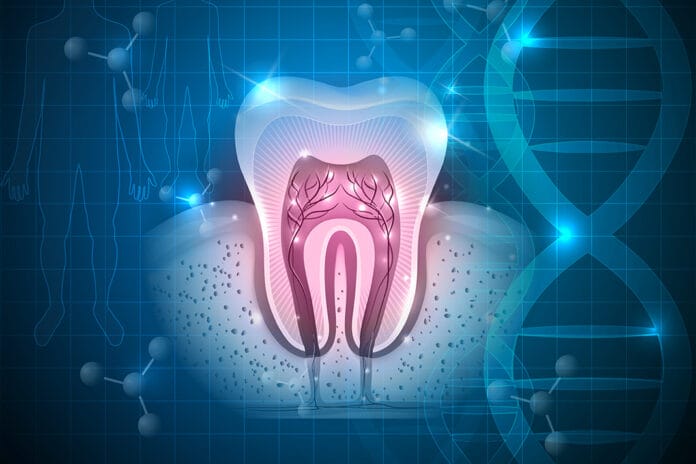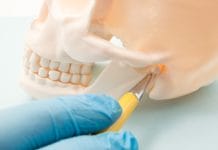Can someone’s oral health be predetermined by their family’s genetics? A Swedish study published in the Journal of Clinical Periodontology examined just that. The study was titled “Using National Register Data to Estimate the Heritability of Periodontitis.”
About Periodontitis
Periodontitis is an advanced stage of periodontal disease caused by virulent pathogens and poor dental hygiene. Dental plaque is an oral microbial biofilm that forms on teeth as bacteria stick to each other then adhere to the surfaces of teeth. In a biofilm, bacteria form a protective layer and transport nutrients within, such as fermentable carbohydrates and sugar. This creates acidic by-products that can cause dental caries (cavities). The acidic environment is favorable to bacteria which can cause bacteria to become more virulent (stronger), which can lead to periodontal diseases if the biofilm is not mechanically removed. It can harden into calculus (tartar), which is must be removed by a dental hygienist. It can destroy the tissue and bone surrounding teeth when left untreated, eventually leading to tooth loss and other serious dental issues, such as severe oral infections.
Some of the risk factors associated with periodontitis include:
- Vitamin C deficiency
- Poor dental hygiene
- Obesity
- Smoking cigarettes or vaping
- Marijuana use
- Chewing tobacco
- Poor diet
- Hormonal changes due to pregnancy or menopause
Patients who are diagnosed with periodontitis may experience the following symptoms:
- Red or purple gingiva (gum tissue)
- Swollen, sore gingiva
- Bleeding gingiva
- Bad breath or halitosis
- Pus along the gingival margin (gum line)
- Loose teeth
- Pain when chewing food
- Tooth loss
- Receding gingiva
About the Scientific Study
A team of Swedish researchers conducted the study to discover whether it was possible for people to inherit certain periodontal traits. To accomplish this task, they decided to examine the electronic dental records from a national Swedish Twin Registry that included dental records of 11,974 adult twins between the ages of 30 and 92 years old.
The scientists decided to use a latent class approach to measure the participant’s periodontal status that occurred in their dental examinations over a period of time. They also studied the correlating patterns and differences between monozygotic (identical) and dizygotic (fraternal) twin pairs.
The Swedish team used quantitative genetic models to estimate the heritability of the traits. The heritable traits were divided into two groups, continuous and categorical. A continuous trait displays a variable or gradual range of genetic expressions (such as height or skin color) that can vary along a continuum and can be influenced by environmental factors. Meanwhile, discontinuous traits are not varied and are controlled by a small number of genes.
By the end of the study, the scientists looked at the data and realized that 10% of the study group had a severe type of periodontitis with a high risk for future tooth loss. The subjects also had a higher genetic predisposition to develop severe periodontal pockets.
Another principal finding involved the continuous and discontinuous traits. The continuous heritable traits associated with the number of missing tooth surfaces and the rate of change in the number of deep periodontal pockets ranged between 41.5% and 48.3% for the twin subjects. When it came to the genetically inherited traits considered categorical in nature, the latent class approach identified several different classes: good periodontal health, mild periodontitis signs, and severe signs of periodontitis. All three traits varied based on the person’s environment and daily oral hygiene habits. As a result, the participant’s risk for tooth loss and oral decay depended on which category they fell into. The class allocations were only partially more heritable at 45.2%.
Based on their findings, the Swedish scientists have concluded that people can inherit some traits associated with periodontitis, and certain genetic risk factors (i.e., inflammatory biomarkers) can affect the severity and overall progression of the disease. The researchers state, “This supports current clinical understanding of periodontitis as a disease with a moderate genetic basis but with important variation due to environmental factors.” Ultimately, they believe there is room for other scientists to conduct future genetic association studies using another method besides electronic dental records to determine which periodontal disease traits can be inherited or passed down to someone else.










